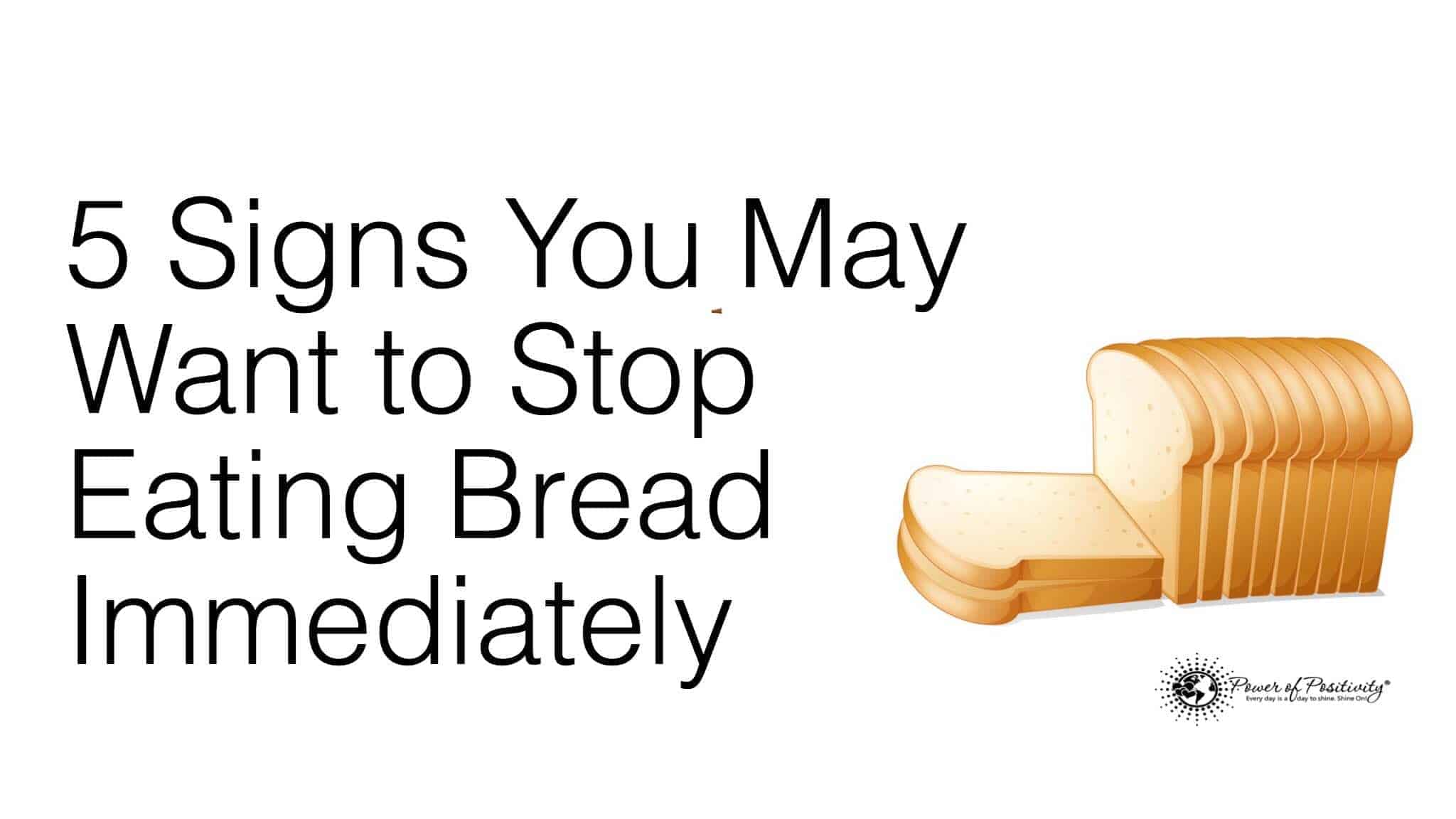Most bread is unhealthy for various reasons, but the way the product is processed is a significant factor. Years ago, bread was predominantly created using whole ingredients and prepared in a homemade style with a sourdough culture that took days to prepare. Now, bread is heavily processed and contains far fewer natural ingredients and probiotics for a healthy gut.
Inexplicably the “food pyramid,” published by the United States Department of Agriculture, hasn’t changed. This pyramid is often taught in schools as a reference to what types of food we should eat in what quantities. It is plausible that such misguided information is contributing to the obesity epidemic in the United States.
Here are five signs you should stop eating bread immediately:
1. Your blood sugar rapidly spikes
The way that bread processes during digestion allows glucose to enter the bloodstream much quicker. This process occurs because the flour contained in bread comes from a powder, which is much faster to digest. The result is that blood sugar spikes and plummets, a physiological dynamic that causes hunger pangs and cravings for sweet and salt foods.
Unreal as it may sound, bread’s Glycemic Index (G.I) is higher than many types of candy – definitely not an inherent property of bread that many are aware of. The higher the G.I index is, the more likely fat will form. This characteristic, combined with the cravings that bread induces, leads many to a cycle of eating a typical meal, only to feel hungry a short time later.
2. Brain fog
Disregarding the multitude of adverse health properties, bread is not a very nutritious food, especially compared to other sources – such as eggs, meat, fruit, fish, and veggies. But bread consumption is a double-edged sword: not only is it non-nutritious, but it also reduces the absorption of other food’s nutrients. When this occurs, our brain often does not receive the necessary supplementation required to function normally.
An example: we’ve decided on a good-sized portion of fish for dinner to add some essential fatty acids into our diet – a terrific habit for our brain. To “balance” out the meal, we bought some freshly baked bread from the local convenience store. What is the result? Well, we’ll indeed digest some fatty acids, though not nearly as much as we’d like since the bread essentially blocked and reduced the absorption of fatty acids and other brain essentials. The result is a decrease in cognitive ability.
3. High cholesterol levels
Whole wheat bread increases LDL cholesterol by up to 60 percent over a 12-week period. LDL is the “bad” cholesterol type linked to various heart conditions, including heart disease. This surprising statistic results from high amounts of wheat and flour in most bread types. Wheat and flour have a direct connection to an increase in cholesterol levels.
Bread is an excellent example of a food’s ability to raise cholesterol levels without technically being high in fat. Breads impact on bad cholesterol levels is currently igniting a debate between nutritionists and other medical professionals. Some nutritionists continue to argue that fat has the most significant effect on bad cholesterol levels, while research continues to indicate otherwise.
4. Intolerance to gluten
Gluten is the substance that gives dough its elastic texture. Consisting of two different types of proteins – gliadin and glutenin – gluten can cause an adverse immune response, damage the intestines, and reduce nutrient absorption. These are prevalent symptoms of both gluten intolerance and Celiac disease.
Gluten intolerance affects nearly 1 in 140 people. In addition to experiencing the symptoms described above, those intolerant to gluten – including those with Celiac disease – might experience bloating, digestive system damage, constipation, and extreme fatigue.
5. Weight gain
While rather self-evident by now, bread isn’t the preferred food for maintaining a healthy weight. Excessive amounts of flour, gluten, preservatives, and other unfavorable substances contribute to the weight gain many experiences when eating bread.
Bread is a somewhat deceiving food, nutrition-wise. Most bread is low in fat and moderately low in calories – two properties conducive to weight loss. However, the counterproductive properties of bread. Think low nutritional value, diminished absorption of nutrients from other foods, rising cholesterol levels, and high glycemic content. Of course, these are not beneficial to maintaining a healthy weight.
If you want to continue eating bread, we highly recommend those with sprouted grains and as few ingredients as possible.


















